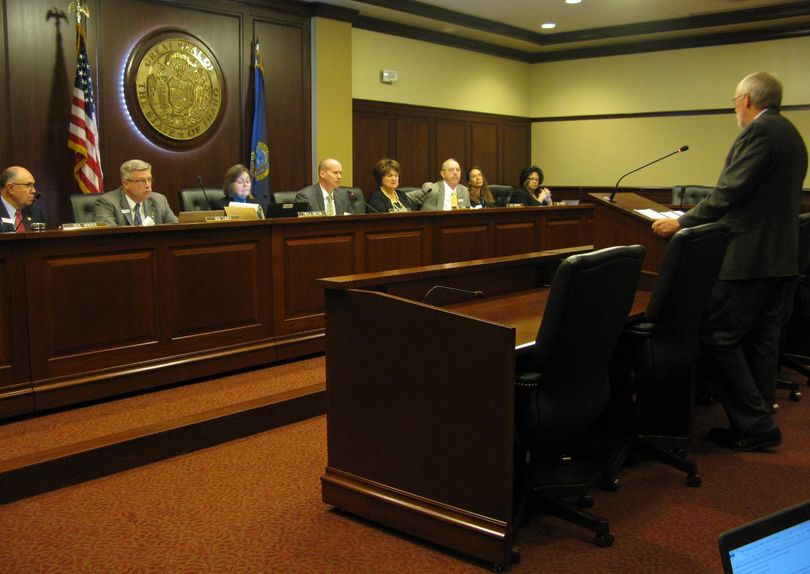Bill would move up party-affiliation deadline to Feb. 11, before new March 8 presidential primary

Idahoans who want to change their party affiliation before this spring’s primary elections will have to act quickly, under legislation introduced this morning at the request of the Idaho Secretary of State’s office. The bill, presented to the Senate State Affairs Committee by Chief Deputy Secretary of State Tim Hurst, moves the deadline up to the second Friday of February – Feb. 11 this year – from the current deadline of March 12. That’s because the current law is aimed at the May primary election, and didn’t contemplate Idaho’s new March 8 presidential primary; under current law, people who are unaffiliated could actually affiliate at the polls as Republicans and vote in the March 8 GOP presidential primary, then switch back to unaffiliated or another party in time for the March 12 deadline, and vote under a different affiliation in the May 17 primary.
The bill has an emergency clause, making it effective as soon as it’s signed into law. “We are moving it up quickly, because the election is pretty quick,” Hurst said. “It just means people need to make a choice – they need to make the choice earlier.”
He noted that half of Idaho’s registered voters are unaffiliated with any party; they could affiliate at the polls and vote in the closed GOP presidential primary and the May 17 closed GOP state primary. It’s just those who are affiliated with a different party who couldn’t participate.
The bill also removes the option for write-in candidates in the March 8 presidential primary. Hurst said that’s because last year, lawmakers set standards for filing for the presidential primary ballot in Idaho by requiring a statement of candidacy and a $1,000 filing fee. “We’ve already got 13 people on there, I don’t think we need any more,” Hurst said. “We talked with the Republican Party about that, they’re in favor of this. It really wasn’t contemplated last year when the presidential primary was put into place.” He said presidential write-ins usually are just people “trying to get their 15 minutes of fame,” whereas the primary is about apportioning party delegates.
Senate Minority Leader Michelle Stennett, D-Ketchum, said, “I completely understand how long that list can get because people sign up for president. But I question whether just because it’s inconvenient and it’s 15 minutes of fame, whether we should muzzle people from that opportunity and part of the election process. It’s still part of a democracy. So I’m a little confused where that came from, that we should not have write-in candidates.”
Hurst said, “They could still become a write-in candidate for the general election. ... This just addresses the presidential primary in Idaho. Those votes are made so they can do the assignment for delegates at the national convention.” He said write-in candidates in the general election just have to file a declaration to have the votes for them be counted, and there’s no filing fee.
Senate President Brent Hill, R-Rexburg, asked whether that raises any legal issues about constitutional rights. Hurst said Hawaii doesn’t allow write-in candidates in any election, and that’s been upheld by the U.S. Supreme Court.
Sen. Todd Lakey, R-Nampa, said, “I’ll be voting to print, but I still have some concern in my mind. I understand that it’s a primary election and we’re dealing with candidates from participating parties, but I still have a concern in my mind about limiting somebody, and if they choose to affiliate with the Republican Party, limiting them in their ability to say, ‘I want to vote for a particular candidate,’ that that voice, although extremely unlikely they would be successful, is not counted.” The committee then voted unanimously to introduce the bill, clearing the way for a full hearing.
Only the Republican Party and the Constitution Party are participating in Idaho’s new March 8 presidential primary; the Democratic Party will apportion its presidential delegates through caucuses.
